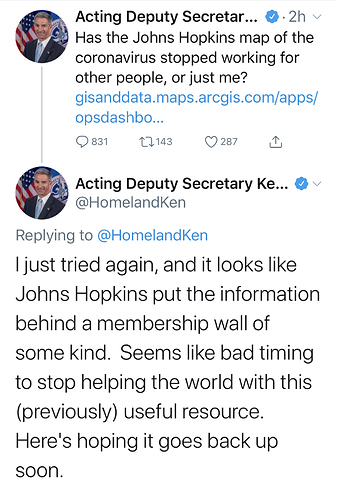Trump’s New Spy Chief Used to Work for a Foreign Politician the U.S. Accused of Corruption
Richard Grenell did not disclose payments for advocacy work on behalf of a Moldovan politician whom the U.S. later accused of corruption. His own office’s policy says that could leave him vulnerable to blackmail.
Grenell has no intelligence background. His only real qualification, from Trump’s point of view, appears to be his willingness to shut down investigations into election interference by the Russians – perhaps best evidenced by his appointment of a fierce Russian interference denier as his top adviser.
Grenell has barely warmed up his seat as the nation’s top intelligence officer and he’s already being accused of FARA violations and not being qualified for a security clearance.
President Donald Trump’s new acting intelligence director, Richard Grenell, used to do consulting work on behalf of an Eastern European oligarch who is now a fugitive and was recently barred from entering the U.S. under anti-corruption sanctions imposed last month by the State Department.
In 2016, Grenell wrote several articles defending the oligarch, a Moldovan politician named Vladimir Plahotniuc, but did not disclose that he was being paid, according to records and interviews. Grenell also did not register under the Foreign Agents Registration Act, which generally requires people to disclose work in the U.S. on behalf of foreign politicians.
FARA is the same law that Trump’s former campaign manager Paul Manafort and former deputy campaign manager Rick Gates were convicted of violating. (Manafort went to trial. Gates pleaded guilty.)
…
“There is real reason to believe that Mr. Grenell should have registered here,” Sanderson said after ProPublica described the circumstances to him. “This is exactly the type of circumstances I’d expect the Department of Justice to investigate further.”Craig Engle, an attorney with the law firm Arent Fox, said he was responding to ProPublica’s questions on Grenell’s behalf. Engle declined to say what Grenell’s paid consulting work involved but said he did not have to register under FARA “because he was not working at the direction of a foreign power.”
…
Undisclosed work for a foreign politician would ordinarily pose a problem for anyone applying for a security clearance or a job in a U.S. intelligence agency because it could make the person susceptible to foreign influence or blackmail, according to the official policy from the office that Trump tapped Grenell to lead.The policy specifies that among the “conditions that could raise a security concern and may be disqualifying” are:
- “Failure to report or fully disclose, when required, association with a foreign person, group, government or country.”
- “Substantial business, financial, or property interests in a foreign country … that could subject the individual to a heightened risk of foreign influence or exploitation or personal conflict of interest.”
- “Acting to serve the interest of a foreign person, group, organization or government in any way that conflicts with U.S. national security interests.”
“That’s really easy, he should not have a clearance,” said Kel McClanahan, a Washington-area lawyer specializing in security clearances. “If he were one of my clients and just a normal [federal employee], he would almost assuredly not have a clearance.”
McClanahan said it’s unclear how Grenell could have already gotten a clearance as an ambassador. The House Oversight Committee is investigating whether the Trump administration has overruled career officials in granting security clearances to political appointees.
As Trump’s pick for acting director of national intelligence, Grenell will have access to the country’s most sensitive secrets. Grenell isn’t subject to Senate confirmation because Trump appointed him on a temporary basis.

